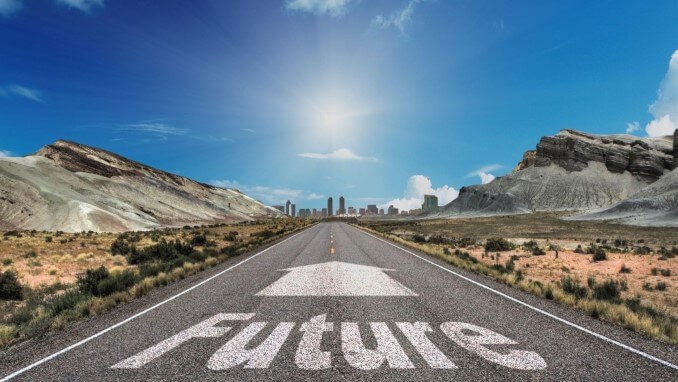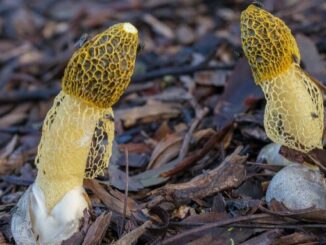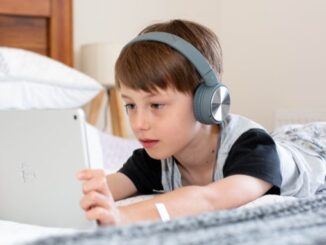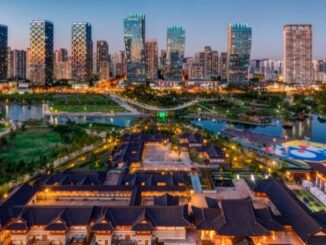
[Editor’ Note – We are very grateful to Joana for allowing us to publish these three scenarios – and giving us an insight into the practice of a professional futurist. Scenarios such as these are the result of research into potential futures including interpreting ‘signals’ – real news items, trends or developments which are happening in the present, but which give us hints about what may be to come. Scenarios are not ‘predictions’ but possibilities – which then allow us to take steps to move towards the desirable possibilities and away from the undesirable ones.
These scenarios are an excerpt from Joana’s upcoming “choose-your-own-adventure” strategy and foresight book – working title “Choose Your Own Future”. The book is a gamified way to approach the Future vs standard business books. For more information go to https://www.futures-forward.com/chooseyourownfuture where you can find a video that explains the book idea.]
In times of crisis and uncertainty, our initial instinctive response is to stick to what we know. However, our current volatile reality provides us with the unique opportunity to build a new, better future.
Three possible future scenarios that may emerge are presented, with the direction of travel based on decisions taken today.
In times of crisis such as the one we are currently living through; our ingrained responses are to fight to preserve and restore our lives to their pre-pandemic status. However, it is now, more than ever, important for us to recognize this as an opportunity to reconsider our priorities, review our old systems, and rebuild our future in new and better ways.
In this article we take a journey into the future through three different worlds that could emerge.
A Brand-New World is prosperous and sustainable, there is global collaboration and people live in harmony with nature as well as technology. Corporates are more sustainable and work in the best interest of all stakeholders.
My Own Personal World is one, where technology facilitates progress and our lives are more convenient but at a cost. It’s a world of failed governments, where companies own all our personal data.
A Hot New World emerges, when we build higher walls and divide our world, instead of collaborating. The effects of the pandemic are long-lasting across all areas of our lives and the health of our planet is neglected.
These scenarios unfold as a result of colliding social, economic, scientific, technological, and environmental developments and the decisions we, as society, must urgently take today. Let’s explore the three scenarios.
A Brand-New World

You wake up and it’s pleasantly chilly, just as you like it, thanks to Sol, your home artificial intelligence (AI), which monitors your body temperature and movements while you sleep, and creates the most pleasant home environment based on your preferences. The blinds go up and Sol has already started brewing the coffee, knowing that you’ve had a late night at the National Health Research Centre. Your health tech company has big news to announce to the public today – a universal respiratory virus vaccine!
The pandemic unlocked investment for research and innovation in healthcare, leading to a massive breakthrough that should save millions of lives. It took years of research and global collaboration between governments, universities, and the private sector to get here but it was worth it. The vaccine eliminates the need for seasonal reimmunization and protects us from different strains of respiratory viruses.
Following the 2020 pandemic, companies focused on sustainability and the adoption of the Economics of Mutuality management model, benefiting not only shareholders but all stakeholders: people, planet, and company. At the beginning, it seemed like a utopian concept but the pandemic proved it to be a sustainable way to do business, enabling your company to live longer and be more profitable. Choosing long-term sustainability over short-term profit was the right decision to make.
There was a societal epiphany moment during the pandemic leading to shifting priorities, with people dedicating more time to family, altruism, and education. A Personal Social Standing (PSS) score was introduced, measuring your contribution to the world’s global sustainable development goals, and rewarding you with access to certain services, entertainment perks, and upgrades to your AI devices.
My Own Personal World
The baby is still sleeping. SecondSkin, the digital patch on your wrist, reminds you it is time to prepare her food as her vitals are showing she will be awake soon. You had the option to bioengineer her DNA. It is now common practice for parents to exercise their recently legalized right to remove genes associated with hereditary disease. Choosing a child’s physical attributes is also possible, if not yet completely legal. There is an ongoing ethical and regulatory debate over whether we should leverage scientific innovations in body and brain engineering and augmentation to fully design a baby’s eye color, intelligence, or physical strength.
The package with the baby’s supplements has arrived, pre-curated for her new developmental phase, with food ingredients, clothes, toys, and vitamins. A subscription service delivers all of these items for the entire family right to your door. You get points added to your overall Personal Social Standing (PSS) score for exercising regularly and eating your personalized diet, built in accordance with your DNA profile.
Governments crumbled during the pandemic, so large companies stepped in. Googlezon now owns the data for your city, as well as its telemedicine platform. You have some rights, of course. You can choose how much you share, but your PSS score is impacted by it. You like to get hyper-personalized services and products, whenever and wherever you need them. However, you sometimes feel trapped in the bubble. If you are feeling more adventurous, you try to confuse the algorithms by making random product choices, just because you want to experiment and try something new.
A Hot New World

It’s been a tough few years since the pandemic. The researchers are still struggling to find a vaccine or a cure. Climate change and shifting weather patterns brought new diseases and stricter control on movement and social contact was needed. Borders were closed and we started living more secluded digital lives. We now long for personal contact but are limited to immediate family and a handful of geo-proximate friends. International travel is almost impossible, so we take virtual vacations. Our main concerns are now cybercriminals and identity theft.
In hindsight, we deployed too many resources searching for a solution to the pandemic health threat, which hit the economy hard. Global trade seized up in favor of higher cost local production and home production of essentials. Those limited by space or ability are relying on government rationed powdered food, which is fortified with essential vitamins and minerals.
With borders closed, illegal immigration from areas of severe drought rose and brought unrest and conflict. Refugee camps and poverty are a common sight these days. However, we did also make some good decisions during the pandemic. Governmental incentives were given to companies and individuals that produce renewable energy. Air pollution was dramatically reduced but global warming continued and we are now adapting to its effects by building houses with less glass and thicker walls. It’s still hot. Very hot.
Conclusion
All of these scenarios are plausible and their realization depends on what decisions we, as society, make now. We could build A Brand New World if we prioritize research investment, sustainable practices, and global collaboration. We could create My Own Personal World, where convenience is key and we advance scientifically and technologically, but our governments fail to protect our privacy and freedom. A Hot New World is a place where poverty, disease, nationalism, and the creeping effects of climate change are taking their toll, because nations failed to recognize the urgency and acted alone rather in collaboration against a global threat.
Will we take the opportunity to build a future in which we are better equipped to face the challenges of the new world? Or will we try to hold on to the past, resisting the change?
- Three Scenarios of a Future World - 16th March 2021





Be the first to comment